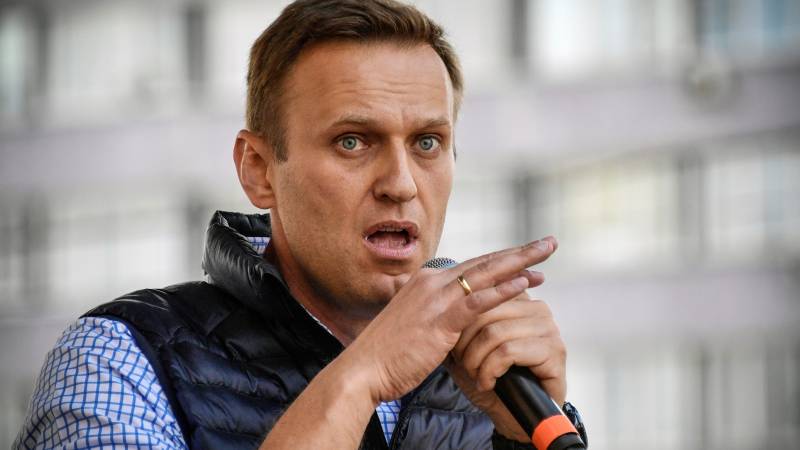Two more labs confirm Navalny Novichok poisoning: Germany

Stay tuned with 24 News HD Android App

Germany said Monday that two more European laboratories have confirmed its own findings that Russian opposition leader Alexei Navalny was poisoned with a Novichok nerve agent, ramping up the pressure on Moscow to shed light on the case.
Hitting back at doubts raised by Russia about the German investigation, Chancellor Angela Merkel's spokesman Steffen Seibert said Germany had asked France and Sweden "for an independent review of the German evidence on the basis of new samples from Mr Navalny," who is receiving treatment in Berlin.
"The results of this review at specialised laboratories in France and Sweden are now available and confirm the German evidence (of Novichok poisoning)," Seibert said in statement.
He said Germany was still waiting for the outcome of a separate evaluation by the OPCW global chemical weapons watchdog.
On the basis of the findings by the three European laboratories, however, Seibert said Germany was "renewing its call for Russia to make a declaration on the events" of the case. "We are in close contact with our European partners about further steps," he added.
Asa Scott, head of division for CBRN defence and security at the Swedish Defence Research Agency, confirmed to AFP its lab in Umea in northern Sweden had also found Novichok in the sample and said it probably came from Russia.
"I can't say whether this sample is from Russia or if it is they who have used it, but what we do know from Russian defectors is that they developed it between the 1970s and 1990s," Scott said. "So I find it unlikely that any other nation that is party to the Chemical Weapons Convention would have it."
'Absurd'
The 44-year-old Kremlin critic and anti-corruption campaigner fell ill after boarding a plane in Siberia last month and was hospitalised there before being flown to Berlin.
Navalny has now emerged from a medically induced coma and is responding to speech, Charite hospital has said. Germany said two weeks ago there was "unequivocal evidence" that he was poisoned with Novichok but Russia has angrily dismissed the findings, saying its doctors found no trace of poison.
Western politicians have insisted the incident appears likely to have been state-ordered and urged Moscow to prove its lack of involvement. Meanwhile the Kremlin has denounced attempts to blame the Russian state as "absurd".
The case has prompted international calls for Russia to carry out a transparent investigation or risk sanctions, but the country has not opened a criminal probe. Kremlin spokesman Dmitry Peskov said Friday that Russia took offence "when other countries dictate to us what legal procedures we should start and when".
He insisted Russia "de facto" is probing the incident, but cannot open a criminal case "on the basis of tests by the German side, especially when carried out in German military labs."
Russian authorities want to question Navalny at his Berlin hospital, with Siberian transport police, who have been retracing Navalny's movements, saying Friday that Russia would be preparing a request for its officers and an "expert" to shadow German investigators.
Allies declare victory
Navalny had been in Siberia to promote a "smart voting" campaign ahead of elections held on Sunday, meaning backing the strongest candidate to defeat the ruling United Russia party. Two of his allies won local parliament seats in the Siberian city of Tomsk where he fell ill, according to early results released Monday.
The polls came a year ahead of parliamentary elections and were seen as a test for the Kremlin, as the ruling party faces sinking popularity and simmering public anger over economic woes.
Meanwhile the Navalny case has heightened tensions between Russia and the West, and sharpened calls for Germany to abandon the nearly-completed Nord Stream 2 gas pipeline project.
Critics say the multi-billion-euro infrastructure undertaking beneath the Baltic Sea that is set to double Russian natural gas shipments to Germany, Europe's largest economy, would increase dependency on Vladimir Putin's government.
Merkel said last week she would not rule out possible consequences for the pipeline if Moscow's response to the Navalny poisoning fails to satisfy Berlin.
